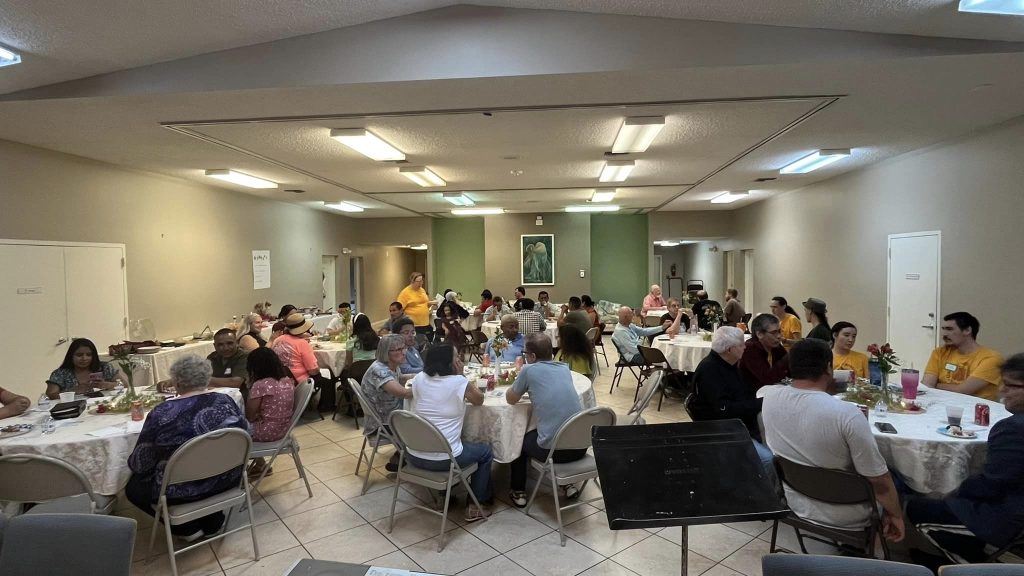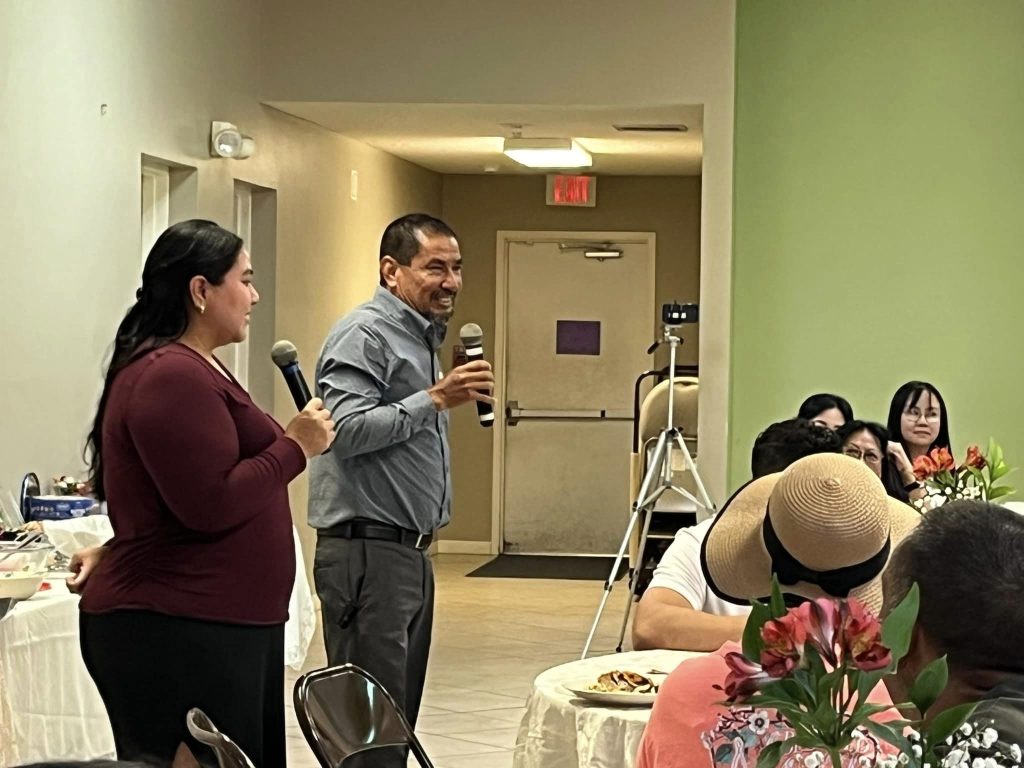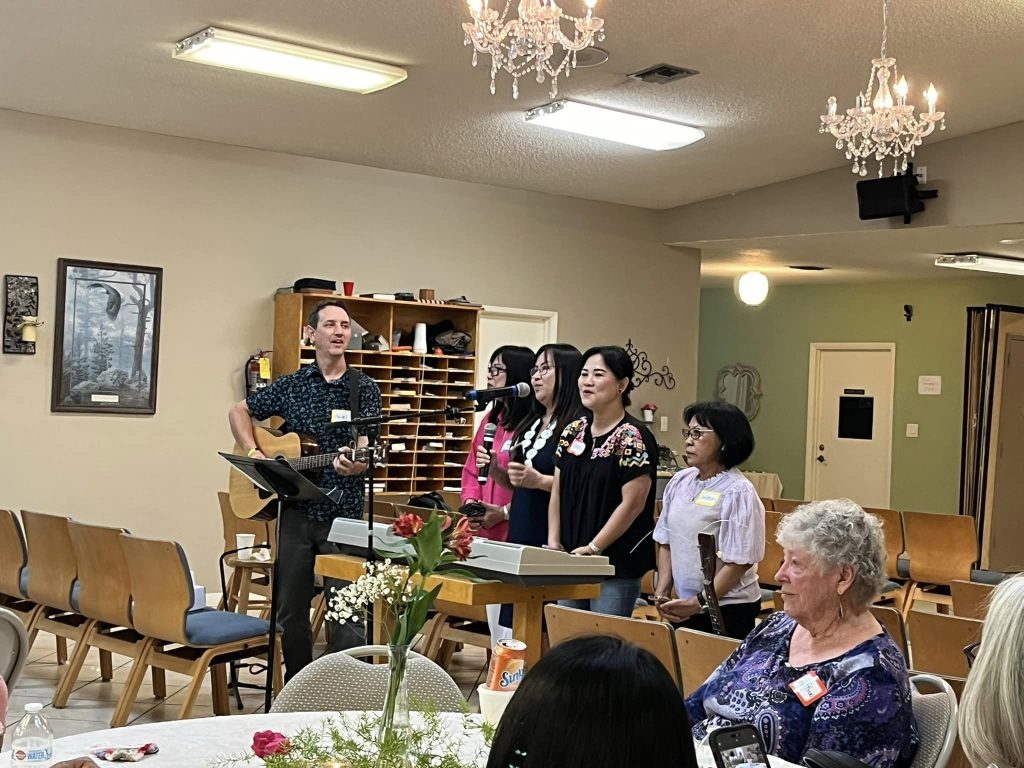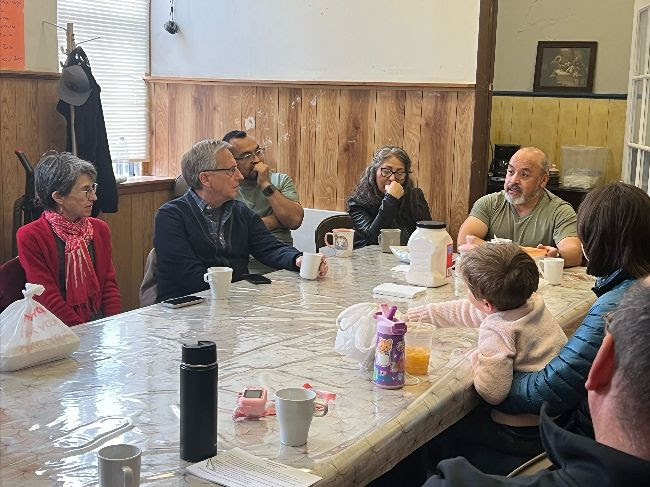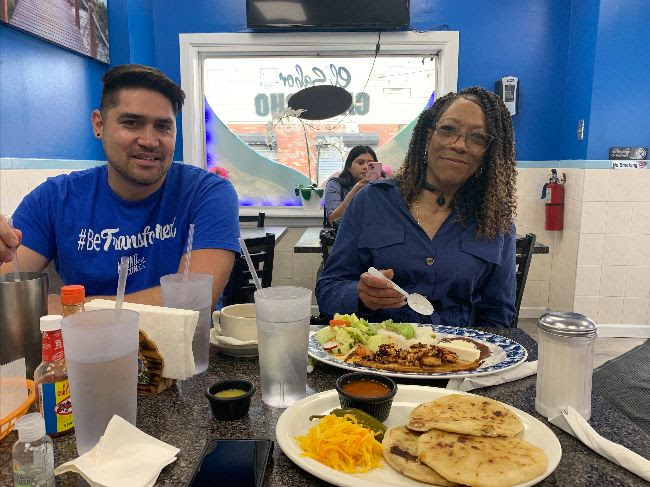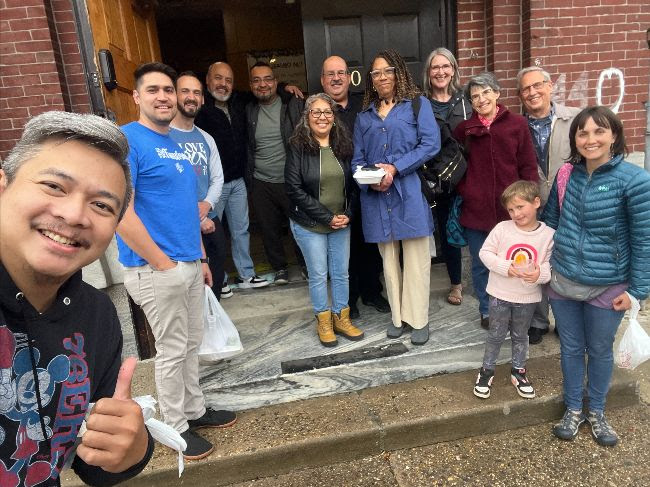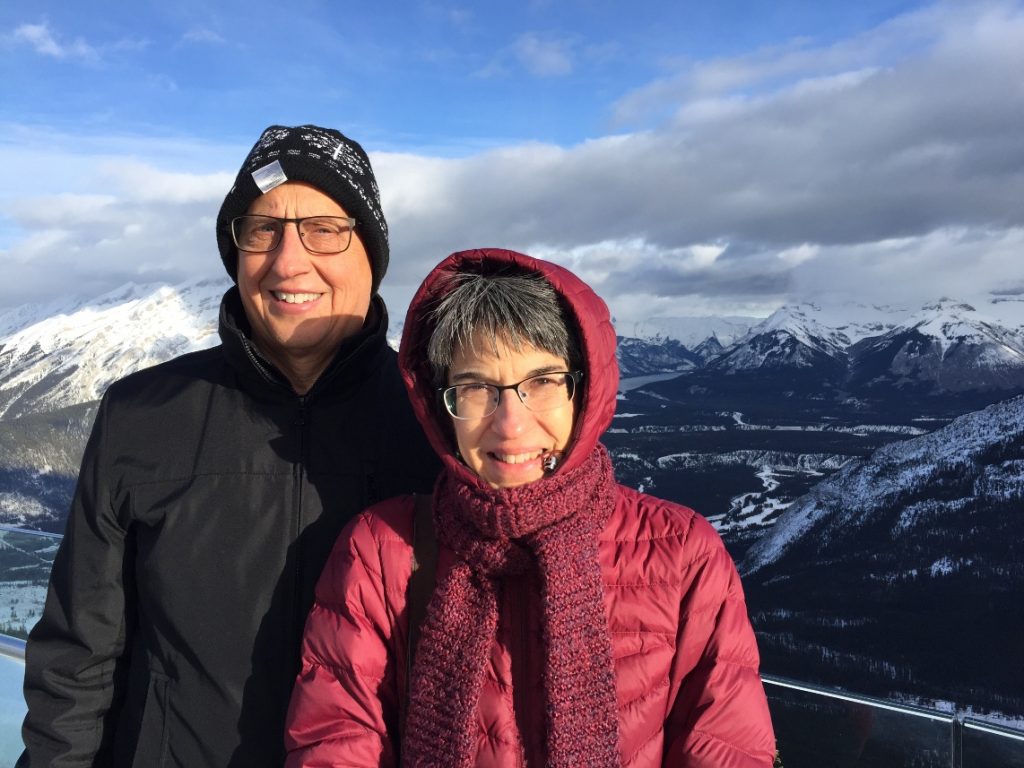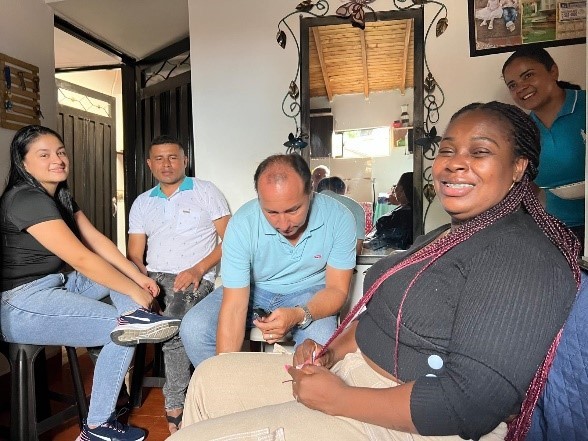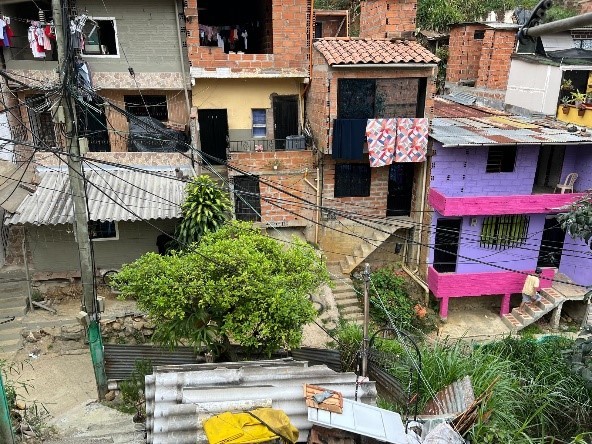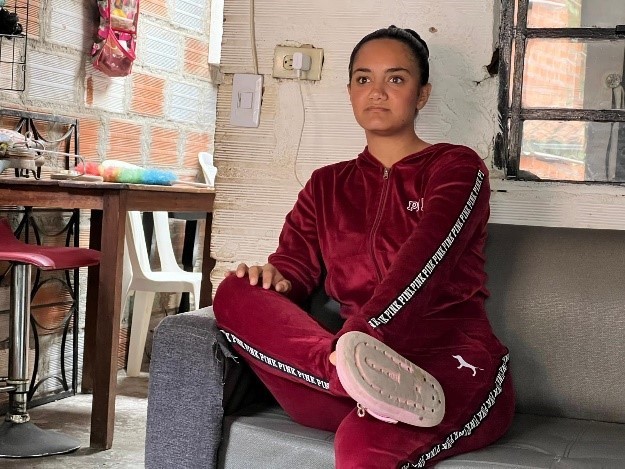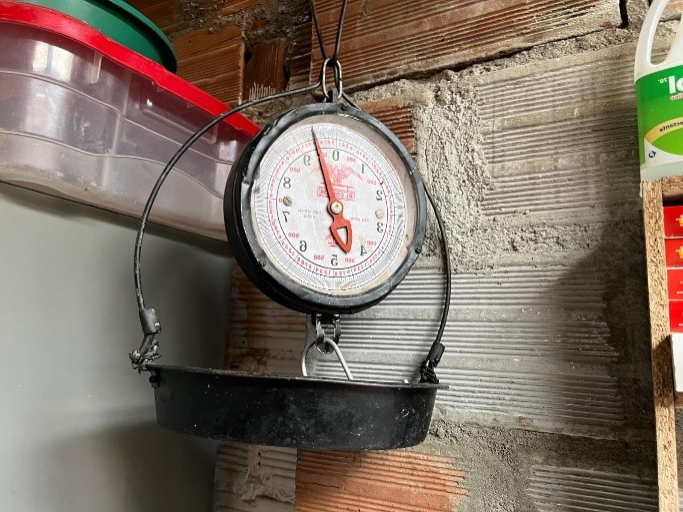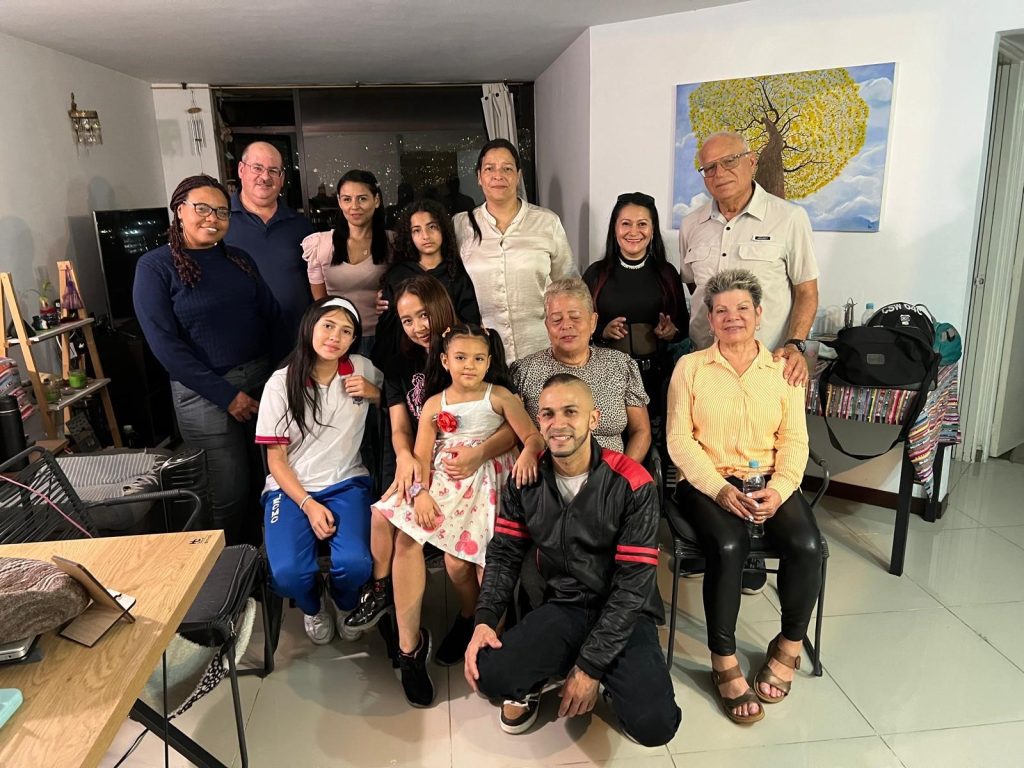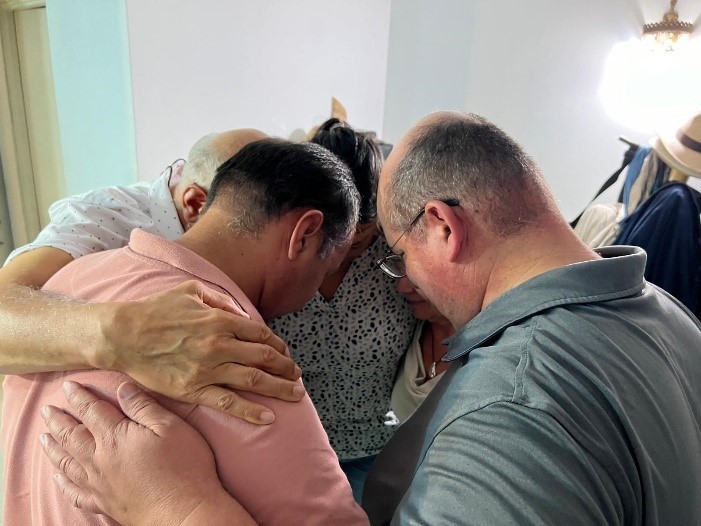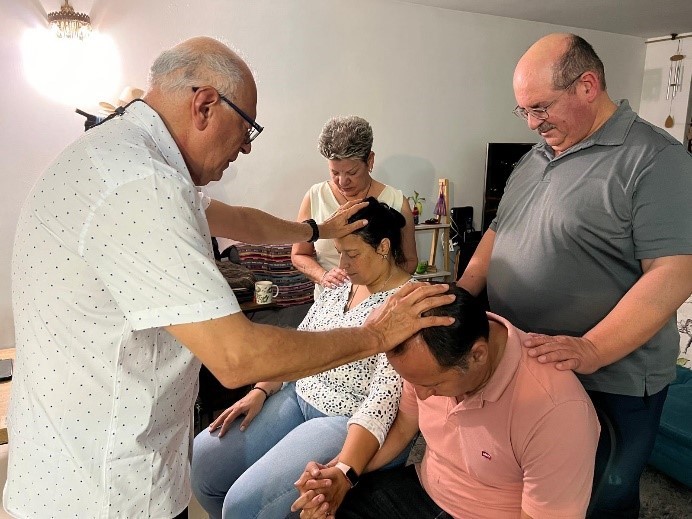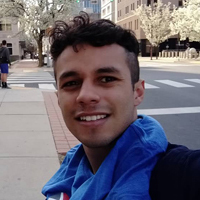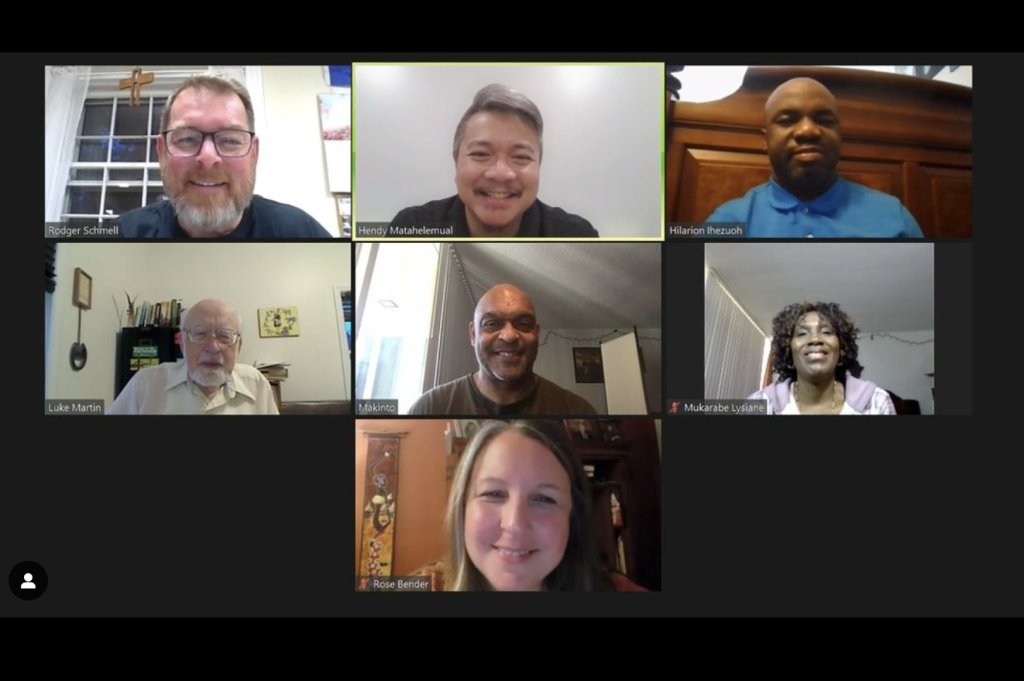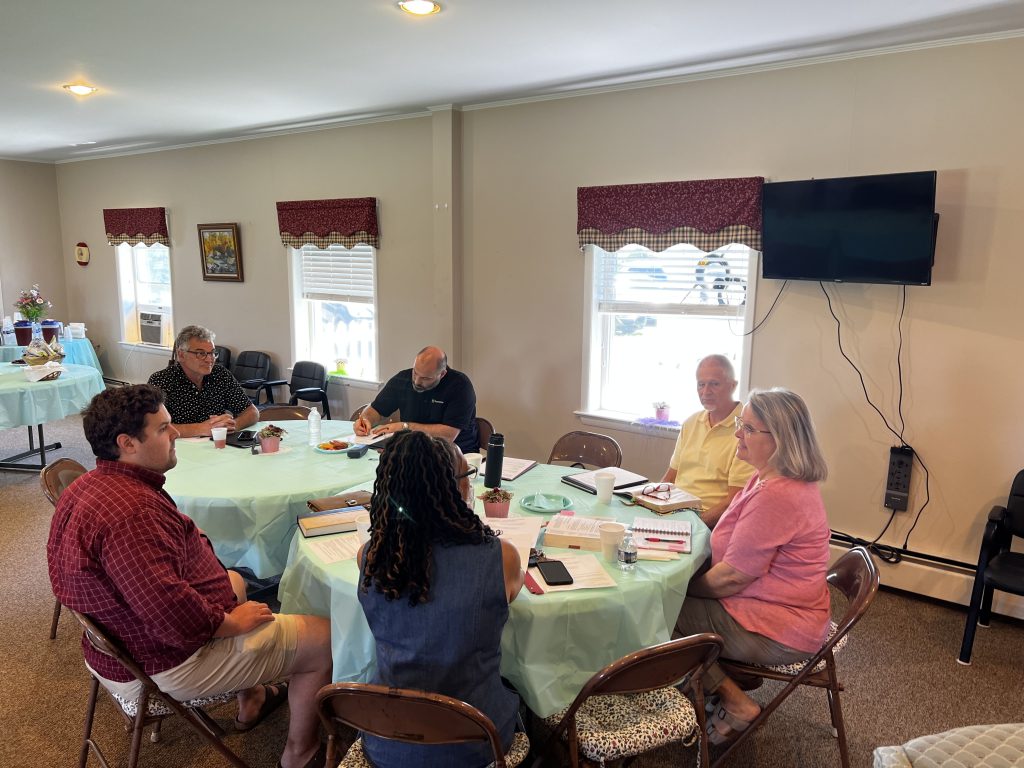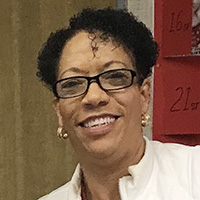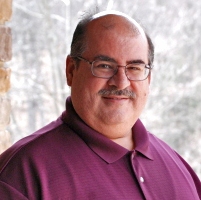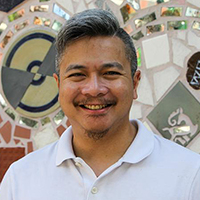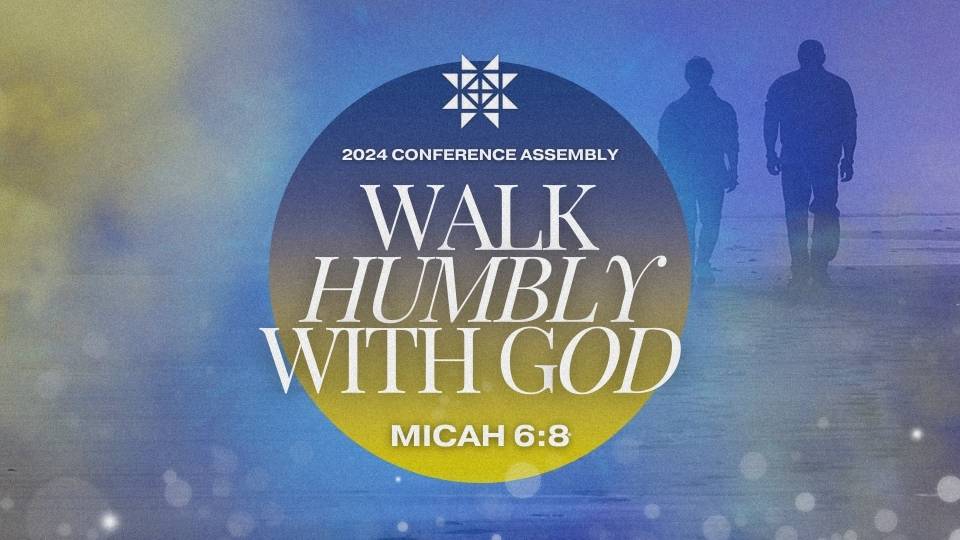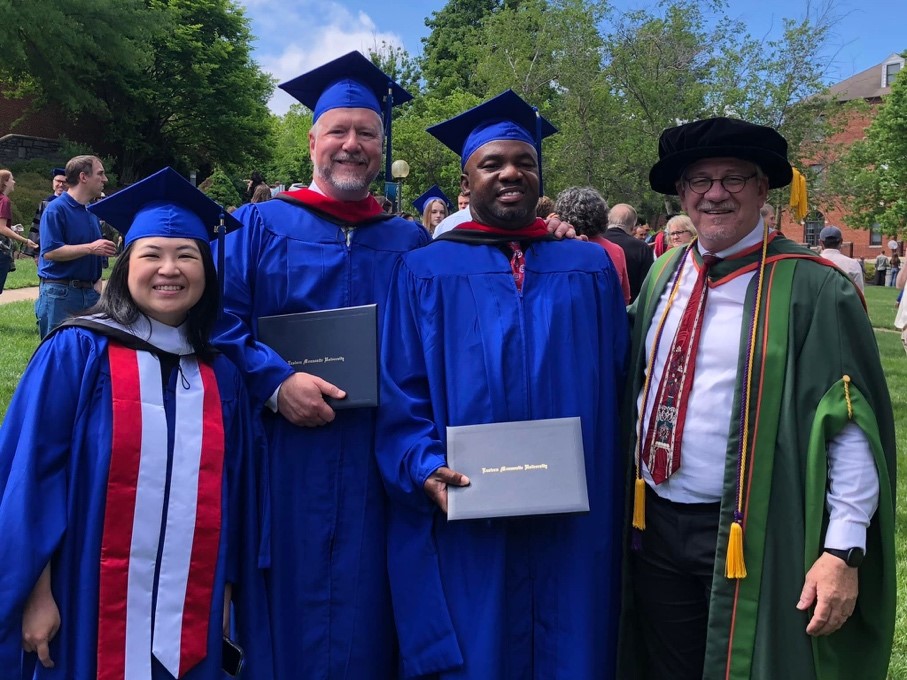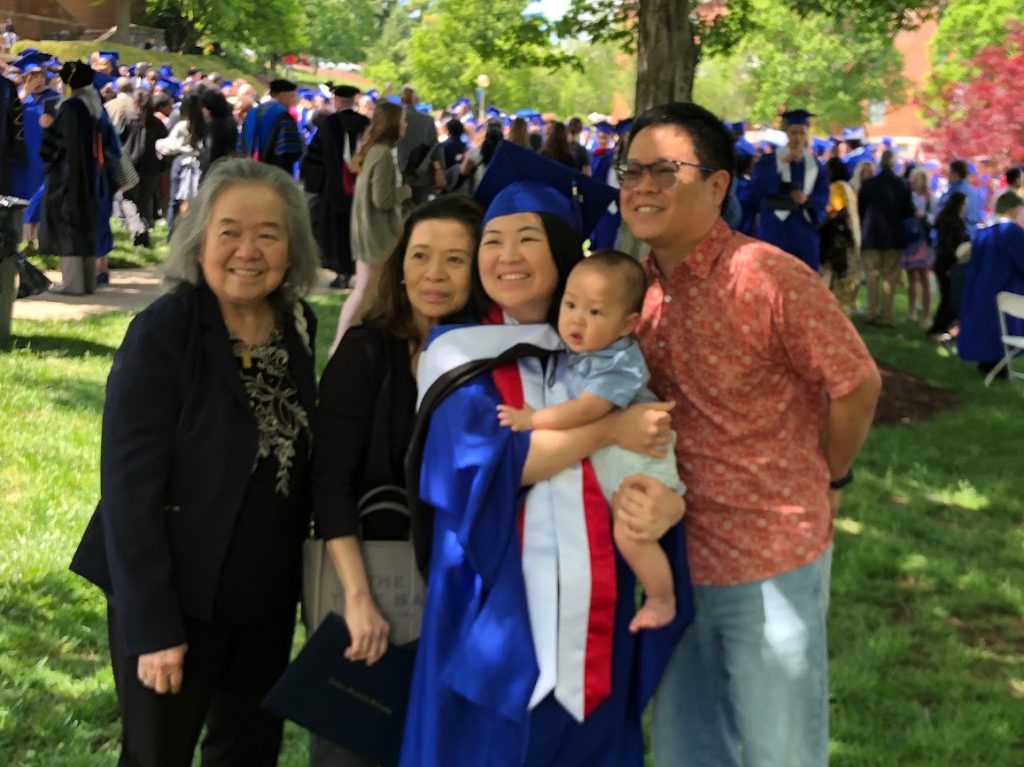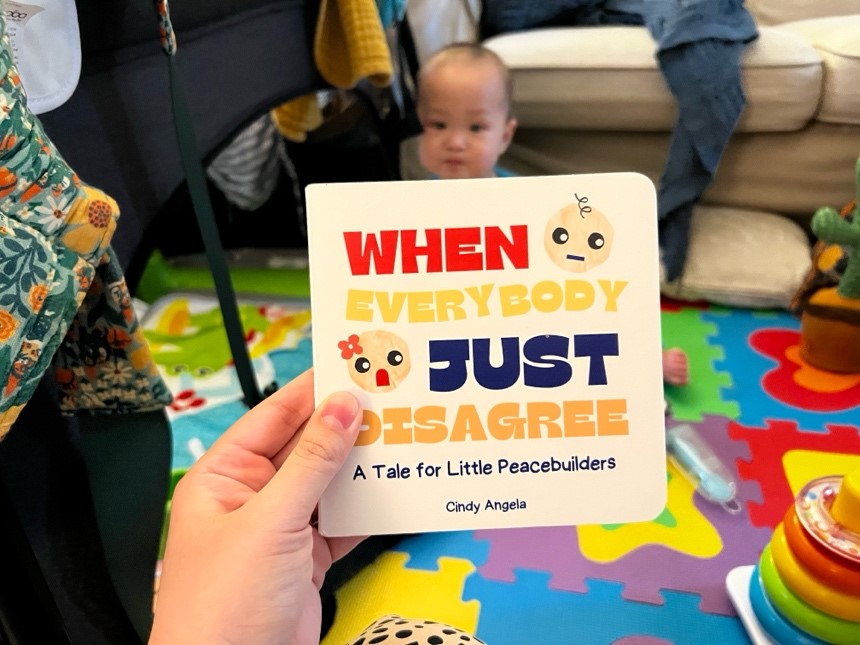by Susan Alloway, Director of Media & Worship for Redemption Church of Bristol (PA)
Whenever you go into someone else’s space, there is always anxiety. Will we be received? Will we offend? Will we be too insistent on our own traditions or blind to our own habits and come across as invaders?
All of this was certainly going through my head as I created the service slides in both English and Haitian Creole in preparation for our joint service with Bethel Church in Levittown, PA. Our church, Redemption, meets only 15 minutes away in Bristol. But none of us speak a word of Creole and we had only just met a few folks from Bethel weeks earlier. We would be going to their meeting space, bringing our preferences, our understanding of punctuality, and our style of dress. How would it go?

On Pentecost Sunday, we had a beautiful service filled with laughter, graciousness, and generosity. I learned how lovely and enjoyable it is to sing in Haitian Creole. We all learned that a Celtic image for the Holy Spirit is “the wild goose,” which Bethel translated as “zwa savage” (the savage swan), and now my husband Gary and I will call geese “zwa savage” for the rest of time. We all accidentally rubbed hand soap instead of sanitizer into our hands before communion because everyone was too bashful to say anything until Bethel’s pastor, Sam, who was last in line, pointed it out (and we all had a good laugh). We ate wonderful, abundant Haitian food. And some of the kids from both churches got into a pillow dodging competition, and then asked if we could keep meeting together each week.
But what was most meaningful to me was when a man from Bethel sat with my family for lunch and told us a story. He said: “I once went to Niger, and I had my shirt tucked in because that is what is seen as the good thing in Haiti. But there, an old man told me that I should untuck my shirt because that was seen as the good thing in Niger, never tuck in. So, I came to understand that a lot of things don’t matter. Neither was actually wrong.”
On Pentecost, two very different churches came together and laughed, sang, ate, talked, and played. Yes, we are different people with different ways of doing church, but if neither is actually wrong, then it’s possible that in Christ there doesn’t have to be anything that keeps us apart.

